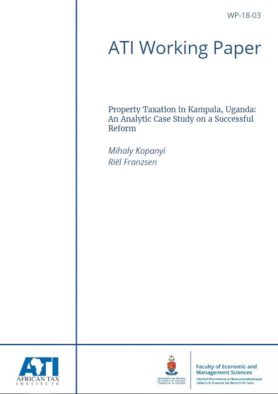Working paper WP-18-03
Kampala’s revenue reforms offer lessons that large and powerful cities should not wait for national actions, rather, they can do a lot “in-house” to improve tax administration, coverage, and collection. Against the rather poor performance of the property tax in Uganda, Kampala’s reforms have resulted in unprecedented increase of own-source revenues generally and the property tax specifically. Kampala exemplifies that property tax revenues can be not only substantial but the largest own revenues even in Africa’s cities. The over fourfold increase of property tax revenues from 2004/5 to 2015/16 is a result of consistent improvement of local tax policies and administration and happened without changes of the national legislation and despite national exemptions of owners-occupied properties. The most critical success factors include: investments in multiyear reform program with substantial funding from donors; built internal capacities by insourcing critical mass of skilled staff with competitive compensation; political support; institutionalized revenue analysis to support policy formation; information technology subordinated to the administration reform; expanded tax base coverages by setting up reliable databases, urban and fiscal cadasters; and tailored and pragmatic communication with taxpayers
